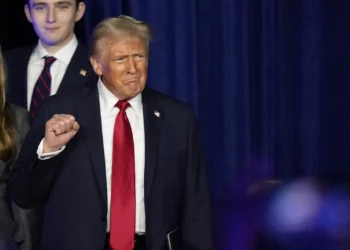In a reversal of a policy, it had announced just hours prior following Donald Trump’s tariffs on Beijing, the US Postal Service (USPS) has announced that it will resume receiving packages coming to the United States from China and Hong Kong.
The USPS said on its website that the USPS and Customs and Border Protection are working closely together to implement an efficient collection mechanism for the new China tariffs to ensure the least disruption to package delivery.
Earlier, the US Postal Service suspended incoming parcels from China and Hong Kong until further notice, the latest escalation of a growing trade war between the US and China.
The postal service did not say why it had suspended incoming parcels, but among Trump’s measures against China are a broad-based tariff on imports, and the elimination of the de minimis duty-free exemption for low-value packages.
The suspension appeared likely to be related to the latter, and was expected to have an impact on US consumer orders from retailers including Amazon.
The initial suspension had threatened the business models of e-commerce giants Shein and Temu, which have built their business models around this exemption.
The relaxed restrictions and tax exemptions on cheap products have allowed more than a billion packages to pour into the US at low prices for consumers looking for deals on anything from clothing to household goods.
In 2023, a US government report said 30% of small packages coming into the US were from two Chinese e-commerce companies, Shein and Temu, alone.
Chinese Foreign Ministry Spokesman, Lin Jian called on the US to “stop the unreasonable suppression of Chinese companies.”
Trump earlier signalled that talks with his Chinese counterpart, Xi Jinping, could take place this week, but speaking on Tuesday, he said that he was in “no rush” to speak with him.
China Slams US’ Measures
On Wednesday afternoon, China’s Foreign Ministry Spokesperson, Lin Jian criticised the US measures and expressed “strong dissatisfaction and resolute opposition.” at a regular press briefing.
“As a matter of principle, I want to point out that we urge the United States to stop politicising trade and economic issues and using them as tools, and to stop the unreasonable suppression of Chinese companies.”
Lin Jian
Lin defended China’s counter-tariffs as “necessary to safeguard its legitimate rights and interests”, but said there were “no winners in a trade war.”
On Tuesday, moments after Trump’s threatened tariffs on Chinese goods came into effect, Beijing said it was imposing levies on imports of US energy, vehicles and equipment.
On Wednesday, the US Department of Homeland Security said the 10% tariffs would also apply to products from Hong Kong.
Additionally, it unveiled fresh export controls on rare metals and chemicals including tungsten, tellurium, bismuth and molybdenum.
China is a major market for US energy exports and, according to Beijing customs data, imports of oil, coal and LNG totalled more than $7bn (£5.6bn) last year.
However, that is dwarfed by China’s imports from more friendly powers such as Russia, from which it bought $94bn-worth last year.
Prof Yeling Tan, from Oxford University’s Blavatnik school of government, said Trump’s tariffs might “ultimately be self-defeating.”
“China also diversified its trade away from the United States after previous tariffs. Research shows that China has sought out alternative markets for its agriculture imports, even while the United States remains reliant on Chinese import demand.”
Yeling Tan
Trump has made tariffs a key foreign policy tool of his second term, saying that tariff is the “most beautiful” word in the dictionary.
READ ALSO: AGI Urges on Government to Craft Policies Targeted at Women Entrepreneurs





















